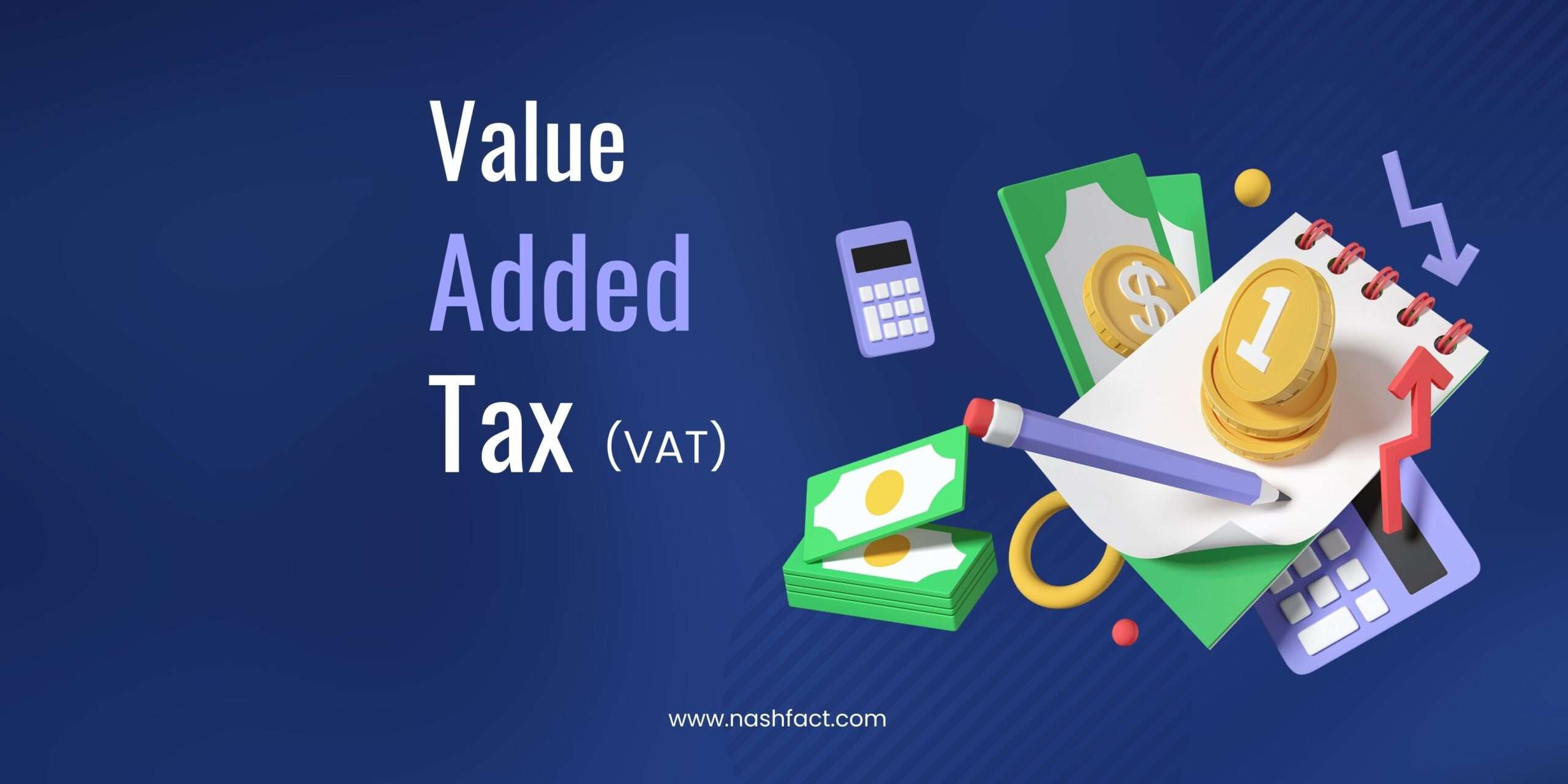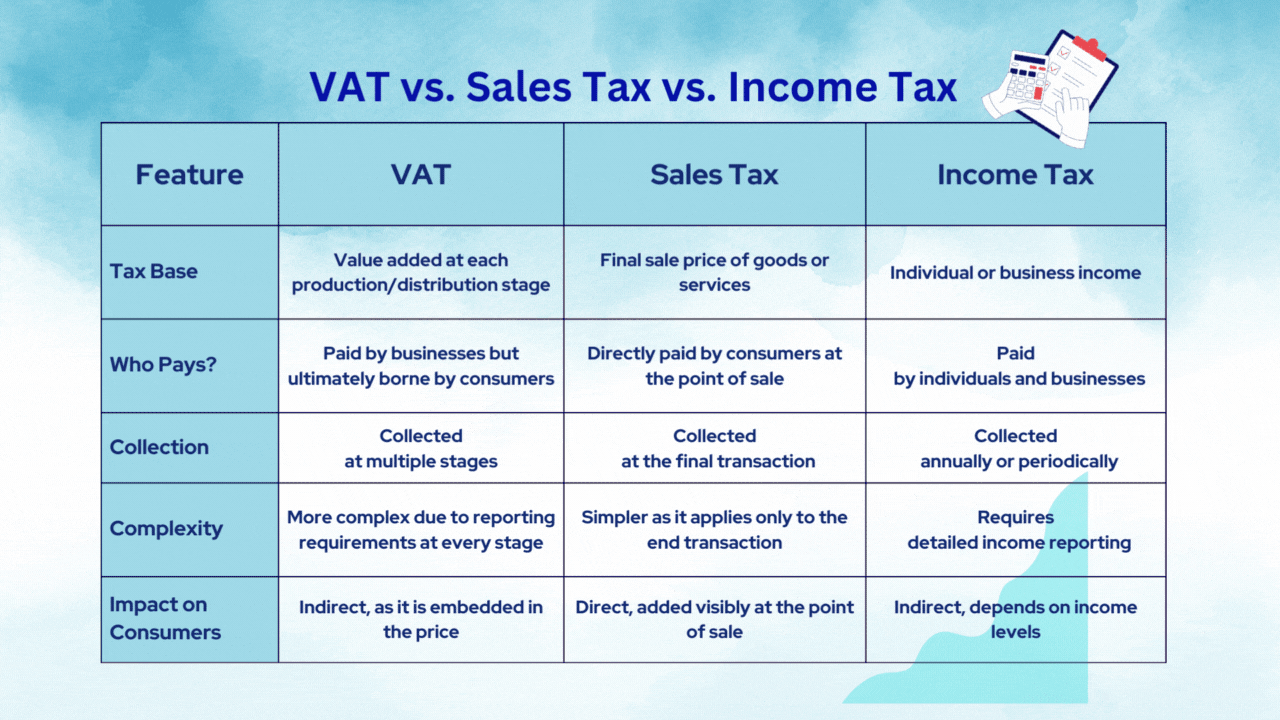- 30 November 2024
- No Comment
- 1164
Understanding Value Added Tax & Spotlight on Saudi Arabia’s VAT Framework

Value Added Tax, or VAT is a widely adopted form of consumption tax that governments use to generate revenue. It is levied on the value added at each stage of production or distribution of goods and services. Here’s a closer look at VAT, how it is collected, its benefits for governments, and how it differs from other taxes.
What is Value Added Tax (VAT) and How is It Collected?
VAT is applied at each stage of the supply chain, from the production of goods or services to their final sale to consumers. Each business in the chain charges VAT on its sales (output tax) and pays VAT on its purchases (input tax). The difference between the output and input tax is remitted to the government.
Steps in Value Added Tax (VAT) Collection:
- Manufacturers and Suppliers: VAT is charged on raw materials supplied to manufacturers.
- Producers: Manufacturers add value to the goods and charge VAT when selling to wholesalers.
- Wholesalers and Retailers: Wholesalers charge VAT to retailers, and retailers charge VAT to consumers on the final sale.
- Consumers: The end consumer bears the VAT as part of the price of goods or services.
Businesses play a key role in collecting and reporting VAT, ensuring transparency and accountability at each stage of the supply chain.
Benefits of Value Added Tax (VAT) to the Government
- Revenue Generation: VAT is a reliable source of government revenue, contributing significantly to public budgets.
- Minimized Evasion: VAT’s self-enforcing nature where each stage of the supply chain reports its VAT liability, reduces opportunities for tax evasion.
- Economic Growth Contribution: By taxing consumption rather than income or savings, VAT encourages investment and economic activity.
- Simplicity: Compared to other taxes, VAT is easier to implement and manage, particularly with advancements in technology.
Value Added Tax (VAT) encourages compliance across the supply chain, while sales tax is more straightforward but limited to the final sale. Income tax is more personal and depends on an individual’s or entity’s earnings.

VAT in Saudi Arabia
Saudi Arabia implemented VAT on January 1, 2018, as part of the Gulf Cooperation Council (GCC) VAT framework to diversify government revenue sources. Here are the key details about VAT in Saudi Arabia:
Standard VAT Rate
Initially introduced at 5%, the VAT rate in Saudi Arabia was raised to 15% in July 2020 to address economic challenges and increase government revenue.
Scope of VAT
Value Added Tax (VAT) applies to the majority of goods and services, including imports. Businesses must charge VAT on taxable supplies, which consumers pay on top of the base price.
Exemptions and Zero-Rated Goods
- Zero-Rated Supplies: Exports, licensed healthcare, and education services are taxed at a 0% rate.
- Exempt Supplies: Financial services (e.g., loans and insurance) and residential real estate leases are exempt from VAT.
Registration Requirements
- Mandatory Registration: Businesses with annual revenue exceeding SAR 375,000 must register for VAT.
- Voluntary Registration: Businesses earning between SAR 187,500 and SAR 375,000 may opt to register.
Value Added Tax (VAT) Filing and Payment
VAT-registered businesses are required to file VAT returns either monthly or quarterly, based on their revenue. They must submit these returns and remit VAT within a month following the end of the filing period.
Monthly VAT Returns:
- Businesses with an annual turnover exceeding SAR 40 million must file VAT returns every month.
- Returns for a given month are due between the 1st and the last day of the following month.
Example: VAT returns for January must be filed between 1st February and February 28th.
Quarterly VAT Returns:
- Businesses with an annual turnover of SAR 40 million or less can file VAT returns quarterly.
- Returns for a quarter are due between the 1st and the last day of the month following the end of the quarter.
Example: VAT returns for the October to December quarter must be filed between January 1st and January 31st.
Refunds for Foreign Businesses
Administration and Compliance
The Zakat, Tax, and Customs Authority (ZATCA) oversees VAT implementation in Saudi Arabia. ZATCA is responsible for providing guidelines, conducting audits, and ensuring compliance among businesses.
As a chartered accountant, my advice to businesses is to stay compliant with VAT regulations to avoid penalties and maintain smooth operations. For consumers, understanding VAT’s impact on pricing can help them make more informed purchasing decisions.

